Now seemed like the perfect time to announce an exciting new development at Purity Coffee®. To further reinforce our commitment to sustainability and to producing the healthiest coffee possible, we have invested in a coffee farm in Colombia.

Since we began, Purity Coffee® has taken a deep dive into researching the health benefits of coffee by studying the scientific literature, seeking out exceptional coffees, and listening to the input and feedback from our customers. We have had countless insights about how coffee’s complexity as a raw green “bean” changes into hundreds of other compounds when roasted. Our research, lab testing and customer experiences have revealed that coffees grown in the right way impact the beneficial compounds delivered to your morning cup, and in equal importance they benefit the farmer and the planet.

We believe that coffee can be one of your highest leverage points for health and longevity. Many of us drink coffee every day so paying attention to making it good for your body is our primary goal. The best coffee for you means that while it is free from contaminants such as: pesticides, mold, and mycotoxins; it is also highest in CGA and other antioxidants. Over the years we have recognized that the coffee highest in CGA comes from farms that use regenerative organic agriculture and is grown the way nature intended. That means a diverse soil, organic farming practices, and cultivars that deliver the most CGA after roasting. We invested in our farm so that we could experiment on a soil and cultivar level to maximize these compounds and to develop best practices we can implement on our farm and on others that we source from.
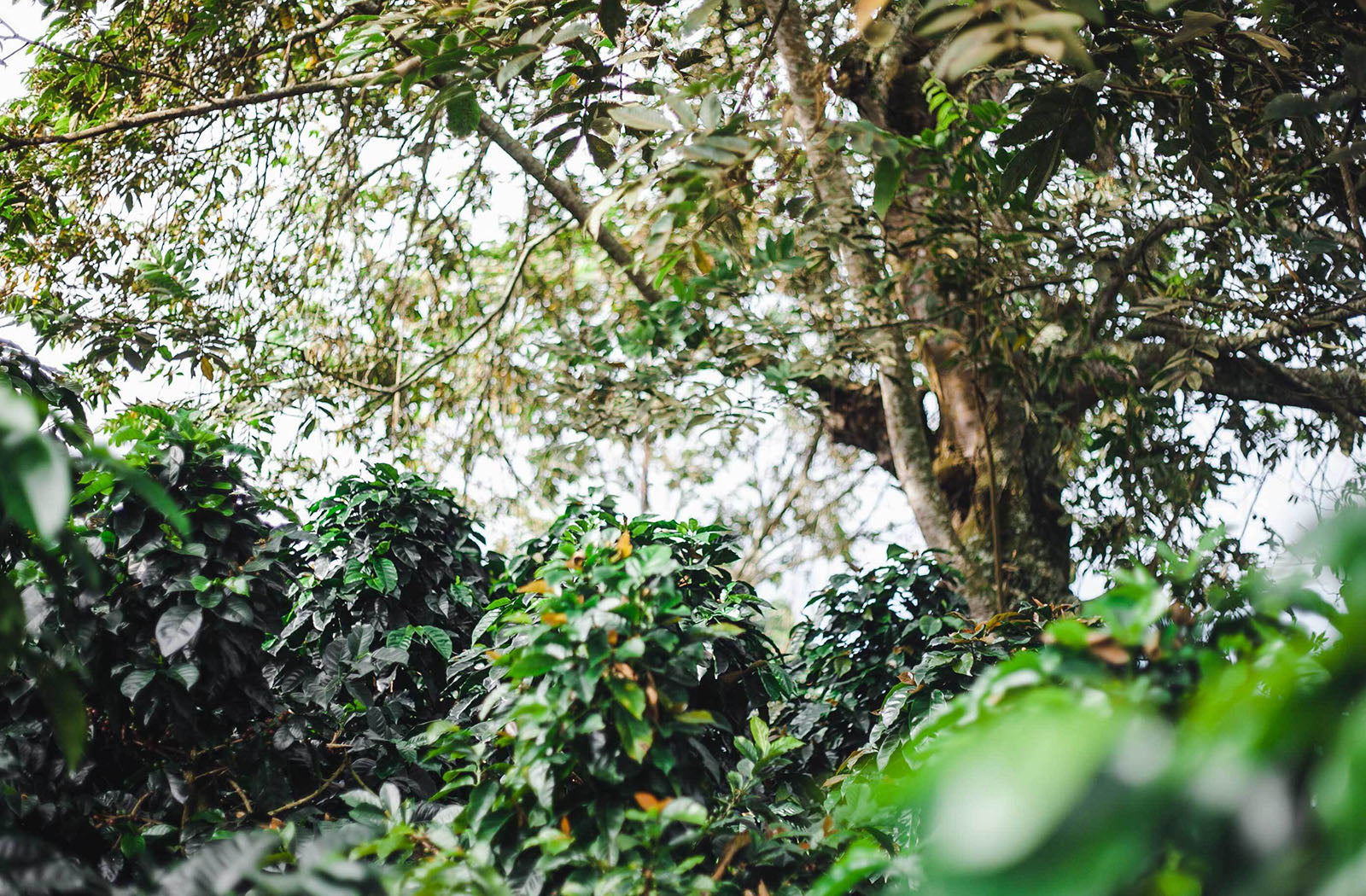
Our new farm will enable us to innovate at the soil level giving us the opportunity to set new elevated health standards for our coffee, but there’s another reason why we’re doing this which is even more profound.
Climate change is an existential threat to our life on the planet. Whether you believe as I do that climate change is the result of human activity isn’t that important. What is important is that the threat is recognized and that we as individuals and governments have the ability to make changes and effect it. It can be reversed by us and should be. The subject is complicated and there are no silver bullets, but when all the factors are taken into account, the way that we farm and treat our food has to be at the top of all the solutions.
At the turn of the century 50% of all Americans were farmers. Now it is less than 2%. The trend is towards fewer farmers and a shift to the use of chemicals and GMO to produce more food at a lower cost. 3 companies now control 70% of agrochemicals and 4 companies control 60% of the seed sold to farmers. Nine big food companies control what is bought and sold in retail outlets including most health foods and organic brands.
Coffee production is following that trend as smaller farmers are finding it difficult to compete with industrial practices. Growing coffee in its natural environment organically is becoming more and more marginal for the farmer, even though this is the path that produces the best organic coffee with CGA and preserves both taste and health benefits.
The problem is that the coffees that these farms produce are lower in nutrients and minerals. We know because we have tested and selected our coffee based on these criteria. Industrial farming requires growing the coffee trees in rows totally exposed to sunshine similar to a winery vineyard. It is a mono-crop, and the soil has no diversity. Because this soil is degraded it requires more fertilizer and irrigation so the use of both has gone up dramatically in the last 15 years. These farms require more inputs of dangerous chemicals as the soil degrades. The UN Food and Agricultural Organization report of 2015 predicted that we only have 60 harvests left before we run out of soil. When land isn’t diverse the soil doesn’t have the chance to develop the important microbes needed to feed the growing plants.
In 2020, Dr. Mark Hyman wrote a book titled Food Fix, illuminating how regenerative organic farming is critical for the future of our earth… and food supply. Among the mountains of proof and statistics, Hyman highlighted that the United Nations Food and Agriculture Organization calculates that 12 million hectares of arable land are lost annually, and experts say we have lost 50-70% of our topsoil from industrialized agriculture, deforestation, over-fertilizing and other poor agricultural practices. Industrial farming also releases carbon into the air and contributes to climate change.
Regenerative organic farming is the solution to this crisis. The regenerative movement is holistic, involving soil health, biodiversity, animal welfare, and fair wages & working conditions, among many other things. We translate this to coffee, ensuring Purity is certified organic, Rainforest Alliance®, Smithsonian Bird Friendly®, hand-picked and sorted, and grown in its natural environment with plenty of natural shade for slow development of the coffee seeds within their fruit.

This Earth Day and every day, we want to encourage consumers to demand more from their coffee so we can ensure the industry is good for the farmers, the consumers, and the planet. This small adjustment can have a huge impact because when you as consumers vote with your wallet, farmers will have the financial incentive to make the changes necessary to follow practices that are better for the environment and the workers themselves. As consumers realize just how good coffee can be for health they will ask for the standards that support that which in turn will reward the farmers and the climate. Ask for organic specialty grade regeneratively farmed coffee that is measurably high in CGA and tested to be free of defects and mycotoxins. You deserve it. And with 164 million Americans drinking coffee tomorrow… that elevated standard can make a sea change to the industry and to your health.
-Andrew & Amber




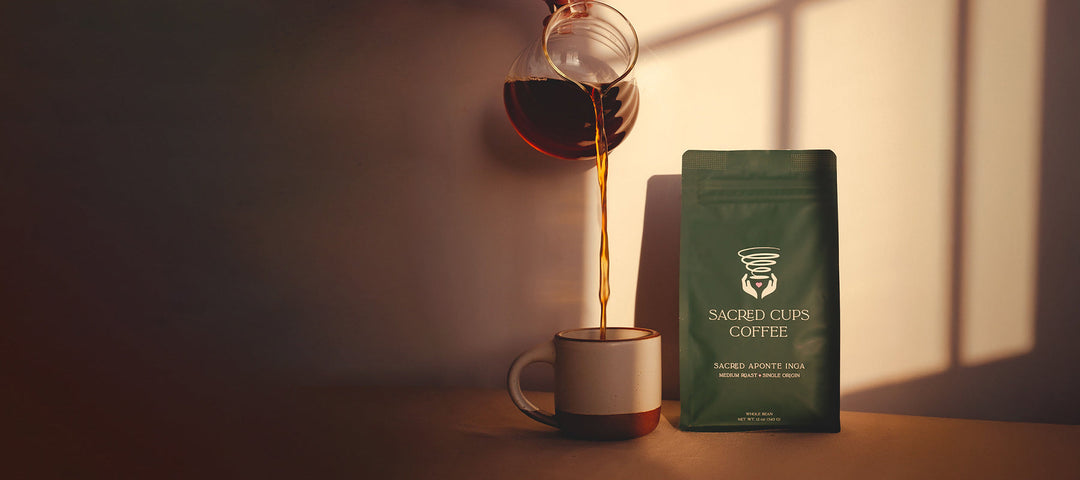
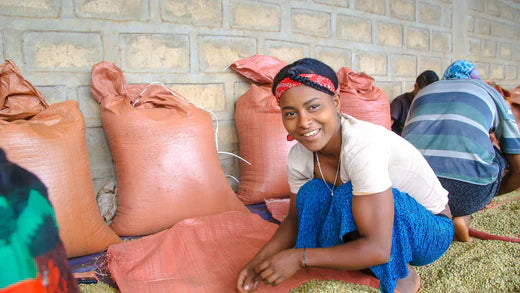

Leave a comment